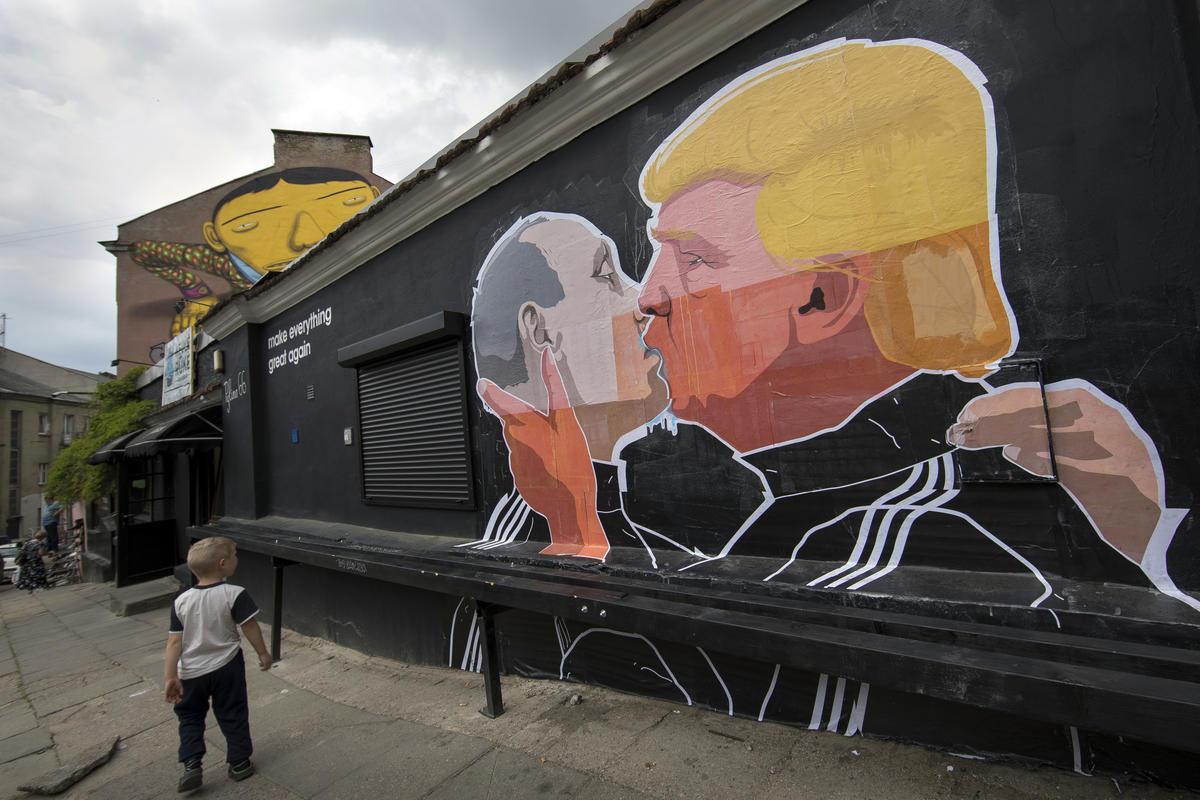Putin's friendly response to the expulsion of his US diplomats has a chilling subtext
Russia appears determined to prise apart the long-standing partnership between Europe and the US – and there is now a very good opportunity to do so

Is the new Cold War postponed? The expulsion of 35 Russian diplomats and the closure of two intelligence-gathering operations in Maryland and New York by President Obama followed allegations that Russia had hacked into emails of prominent Democrats, including Hillary Clinton, during the election campaign. The conventional response to this, familiar during the days of the Cold War, would have been a tit-for-tat expulsion by Russia of a similar number of US diplomats posted there. This was indeed the request of the Russian foreign minister, Sergei Lavrov. His ministry asked for President Putin’s approval to expel 31 diplomats from the US embassy in Moscow and a further four from the consulate in St Petersburg. But President Putin turned it down.
“The new unfriendly measures by the US administration are regarded as provocative, designed to further undermine relations,“ Mr Putin said. But he added: “We will not create problems for American diplomats. We will not expel anyone.”
This is the clearest signal yet that Russia is seeking a reset of its relations with the United States, a sign that it is seeking a rapprochement with the new, inexperienced – but evidently friendly to Russia – President Trump. There are rational reasons why it should want to do so. Western sanctions have undoubtedly damaged the Russian economy, which barely grew in 2014, shrank sharply in 2015 and almost certainly fell further this year. The fall in oil and gas prices will have played a large part in this contraction, but the measures agreed by the G7 countries in 2014, following the annexation of the Crimea and the incursions into eastern Ukraine, have made recovery much more difficult. These existing sanctions were extended earlier this month by both the EU and Japan, and have now been reinforced by further measures by the US.

If President Putin’s response simply showed a desire to have better relations with the West in general – a “let’s-kiss-and-make-up” gesture – it would be welcome. Russia has become an increasingly difficult and devious player on the world stage, and some of its actions, notably in the Middle East, have been disgraceful. But there is a disturbing subtext: that Russia is determined to attempt to prise apart the long-standing partnership between Europe and the US. And there is now a very good opportunity to do so.
Europe is distracted by internal tensions over the euro and migration, by Brexit of course, by a series of elections in three major countries – the Netherlands, France, and Germany – and by the probability of elections in a fourth, Italy. Even more important, the new US President has signalled in a number of ways that he will seek better relations with Russia, even at the expense of its continuing military support for Europe. These include suggestions that if the US is to continue its role in Nato, the EU nations will have to increase their defence spending.
The President-elect’s nomination of Rex Tillerson, chief executive of ExxonMobil, as Secretary of State, will if confirmed mean that Mr Putin has someone whom he knows well, and has personally awarded the Russian Order of Friendship, in charge of US foreign policy. As for his own business interests, he signed an agreement last summer (just one, it should be said, of several attempts to do so) to build a Trump Tower in Moscow.
What we are seeing now is a classic test of what the new US administration will do next. Mr Putin wants to see how resolute Mr Trump will be in supporting the defence of Europe, but also how accommodative American foreign policy will respond to Russia’s other geopolitical interests. A return to the Cold War would prove counter-productive for a host of reasons. Mr Trump should be prepared to dine with Mr Putin. But he should sup with a long spoon.
Join our commenting forum
Join thought-provoking conversations, follow other Independent readers and see their replies
Comments
Bookmark popover
Removed from bookmarks